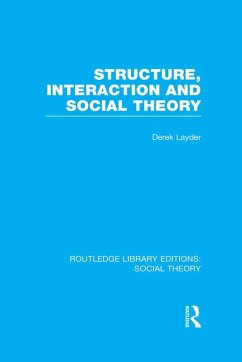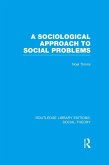First, Dr Layder pinpoints certain of the strengths and weaknesses of various schools of thought: social psychology (scrutinized in both its sociological and psychological forms), sociology, the Marxist-rationalist approach. Whilst rejecting the mechanistic or naively deterministic theories which are often associated with an objectivist stance, he argues that the productive activities of situated actors must be understood as existing in an articulated relationship with, and within, sets of preconstituted contextual constraints. This thesis is illustrated conceptually by the development of a framework which distinguishes two types and levels of social structure, with different modes of production and reproduction, and empirically by an analysis of aspects of interaction in the occupation of acting.
Dieser Download kann aus rechtlichen Gründen nur mit Rechnungsadresse in A, B, BG, CY, CZ, D, DK, EW, E, FIN, F, GR, HR, H, IRL, I, LT, L, LR, M, NL, PL, P, R, S, SLO, SK ausgeliefert werden.









